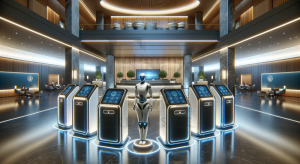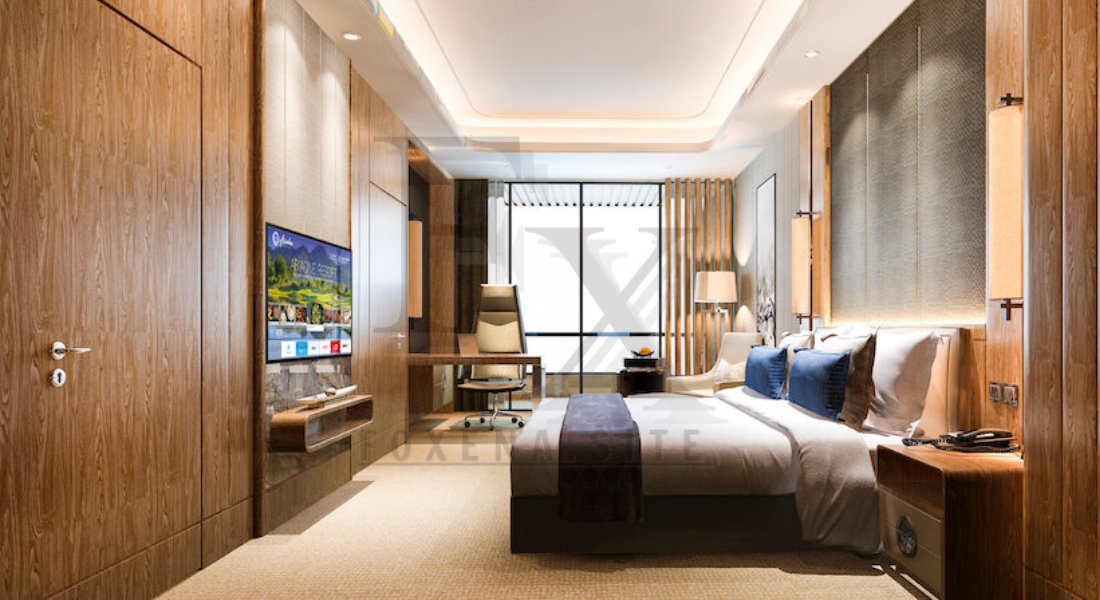The hospitality industry has always been driven by the desire to provide guests with exceptional experiences, and over the years, that mission has evolved. With the rise of digital technology, data analytics, and changing customer expectations, hotels are now offering personalized services that go far beyond traditional offerings. Personalized hotel services are revolutionizing the industry, ensuring that each guest’s experience is tailored to their unique preferences, needs, and desires.
In this article, we will explore how personalized hotel services are shaping the future of hospitality. From AI-driven concierge services to customizable in-room experiences, we’ll look at the latest trends and innovations that are transforming the guest experience and driving success for hoteliers.
What Does Personalization in Hospitality Mean?
Personalization in hospitality refers to customizing every aspect of a guest’s stay based on their preferences, history, and expectations. In a world where guests have become more demanding and tech-savvy, hotels are increasingly focused on creating unique, memorable experiences that cater to individual needs. Personalization can take many forms, from the way a guest is greeted at check-in to the amenities and services provided during their stay.
By leveraging data collected through various touchpoints, hotels can offer tailored experiences that enhance guest satisfaction, foster loyalty, and ultimately drive revenue. Personalized services not only cater to a guest’s preferences but also anticipate their needs, making them feel valued and understood.
The Role of Technology in Personalizing Hotel Services
In the past, personalizing hotel services required manual effort and extensive interaction between guests and hotel staff. Today, advancements in technology are making it easier for hotels to offer personalized services on a large scale. Some of the key technologies driving this revolution include:
1. Artificial Intelligence (AI) and Machine Learning
AI and machine learning algorithms play a pivotal role in delivering personalized experiences. By analyzing guest data, including past stays, preferences, and behavior patterns, AI can suggest tailored recommendations for services, amenities, and even room settings. For example, AI-powered concierge services can predict the type of room a guest would prefer, the amenities they’re most likely to use, or even their preferred temperature settings in the room.
Additionally, chatbots powered by AI are becoming increasingly common, offering guests 24/7 assistance. These chatbots can answer questions, provide recommendations, make bookings, and resolve issues, all while delivering a personalized experience that feels human-like and attentive.
2. Data Analytics and Guest Profiling
Data analytics has transformed the way hotels understand their guests. By collecting and analyzing data from past bookings, reviews, and guest interactions, hotels can create detailed profiles of their guests. These profiles help hoteliers tailor services, such as recommending spa treatments, booking special excursions, or even offering room upgrades based on previous preferences.
This data-driven approach allows hotels to go beyond simple personalization, offering experiences that guests may not have even known they wanted. For example, if a guest has previously stayed in a room with a specific view or a preferred floor, the hotel can proactively offer that same room or one with similar characteristics during their next visit.
3. Smart Room Technology
The concept of smart rooms is another exciting aspect of personalized hotel services. With the integration of IoT (Internet of Things) devices, hotels can offer guests greater control over their environment. Guests can adjust room lighting, temperature, and even the TV channel or music playlist directly from their smartphones or through voice-activated assistants.
Smart rooms go beyond just convenience; they enhance personalization by learning guest preferences over time. For instance, if a guest always sets the room temperature to 72°F and dims the lights to a certain level, the system can remember those preferences and automatically adjust the room for their next stay.

4. Mobile Apps for Seamless Experiences
Mobile apps have become essential tools for personalization in the hospitality industry. Most major hotel chains now offer mobile apps that allow guests to check in, unlock their rooms, make reservations, and access personalized offers and services. Through these apps, guests can communicate directly with hotel staff, request special services, and even order room service with just a few taps.
Furthermore, these apps can track guest preferences, ensuring that any special requests or personalized services are remembered for future stays. For example, if a guest prefers a particular type of pillow or a specific kind of welcome drink, the app can automatically notify the hotel staff to prepare those items before the guest’s arrival.
Trends in Personalized Hotel Services
As technology advances, the opportunities for personalization in the hospitality industry continue to grow. Some of the latest trends in personalized hotel services include:
1. Customized In-Room Experiences
Hotels are increasingly offering customized in-room experiences, allowing guests to create an environment that suits their tastes. This could include personalized lighting settings, curated music playlists, and even personalized minibars stocked with the guest’s favorite snacks and drinks. In addition, some hotels now offer the option to personalize the scent of the room, with various essential oils or fragrances tailored to the guest’s preferences.
This level of customization ensures that guests feel at home, even when they are thousands of miles away from their real homes.
2. Personalized Wellness and Spa Treatments
Wellness tourism is on the rise, and hotels are embracing this trend by offering personalized wellness experiences. Guests can choose from a range of customized treatments, including massages, facials, and fitness programs. Using data from health apps or wearables, hotels can offer bespoke wellness packages based on a guest’s health goals, activity levels, and preferences.
For instance, a guest who has tracked their sleep patterns using a wearable device could be offered a personalized spa treatment designed to improve sleep quality. Similarly, a guest with fitness goals could receive a tailored workout plan or even private training sessions.
3. Concierge Services Tailored to Personal Preferences
Traditional concierge services have been transformed into highly personalized offerings thanks to technology. Many hotels now employ AI-powered concierge platforms that can handle guest requests more efficiently while offering tailored recommendations. These services can recommend local dining options, suggest attractions based on a guest’s interests, or even book tickets for shows or experiences that align with the guest’s tastes.
Some hotels have also introduced “virtual concierges” that allow guests to request services, make reservations, or ask for recommendations via text, chatbots, or voice assistants.
4. Bespoke Dining Experiences
Personalized dining experiences are becoming increasingly popular, with many hotels offering customizable meal options based on guests’ dietary preferences and restrictions. Whether a guest is vegan, gluten-free, or follows a specific food trend, hotels are offering tailored menus that cater to individual dietary needs.
In addition to this, some hotels are offering personalized dining experiences, such as private chef-led dinners, curated wine pairings, and even cooking classes that cater to the tastes of each guest.
5. Localized Experiences
Guests are looking for more than just a comfortable place to stay; they want to connect with the local culture and community. Many hotels are responding to this demand by offering personalized local experiences. Whether it’s a guided tour of local landmarks, a cooking class with a local chef, or tickets to exclusive events, hotels are curating experiences that allow guests to immerse themselves in the destination.
Hotels are also partnering with local businesses to offer unique, one-of-a-kind experiences that cannot be found elsewhere, such as private yacht charters or access to VIP events.
The Benefits of Personalized Hotel Services
Personalized hotel services offer a range of benefits to both guests and hotel owners:
1. Increased Guest Satisfaction and Loyalty
Personalization leads to higher guest satisfaction, as it makes guests feel valued and appreciated. When hotels take the time to understand and cater to individual preferences, guests are more likely to return, leading to increased customer loyalty and repeat bookings.
2. Enhanced Revenue Opportunities
Offering personalized experiences can lead to increased revenue opportunities for hotels. By offering upsell options based on guest preferences (such as room upgrades, special dining experiences, or spa treatments), hotels can generate additional income. Personalized offers and loyalty programs also encourage guests to spend more during their stay.
3. Competitive Advantage
In a competitive industry, personalization provides hotels with a key differentiator. Guests are increasingly seeking unique experiences, and hotels that can offer customized services will stand out in the marketplace. This competitive advantage helps attract high-value guests and maintain a strong reputation in the hospitality industry.
Conclusion
The future of hospitality is undeniably tied to personalization. Hotels that embrace technology, data analytics, and customization will be at the forefront of this revolution, delivering unique, tailored experiences that meet the ever-evolving expectations of their guests. Personalized hotel services not only improve guest satisfaction but also foster long-term loyalty and revenue growth. As the industry continues to innovate, the role of personalization will only become more important, ensuring that the guest experience remains at the heart of the hospitality industry’s future.
